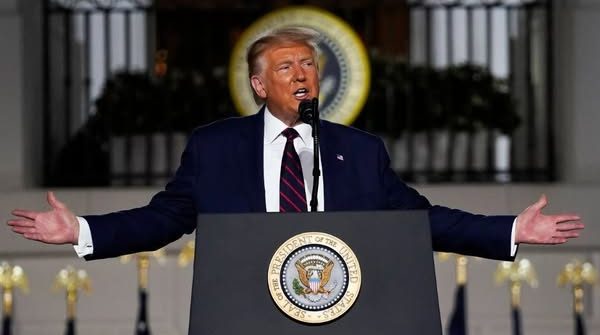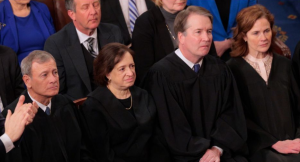In a developing legal showdown over presidential trade authority, the U.S. Court of Appeals for the Federal Circuit on Thursday issued a temporary stay on a lower court’s decision that had blocked some of former President Donald Trump’s tariffs. The move allows certain trade measures to remain in effect—at least for now—as legal challenges continue to work their way through the courts.
Temporary Reprieve for Tariff Measures
The stay was issued in response to a Wednesday ruling from the U.S. Court of International Trade (CIT), which had granted a permanent injunction against a set of tariffs imposed under the Trump administration. These tariffs, some referred to as part of the administration’s broader “economic emergency response,” targeted imports from China, Mexico, and Canada and were challenged by business coalitions and trade groups.
The appeals court stated in its order:
“The judgments and the permanent injunctions entered by the Court of International Trade in these cases are temporarily stayed until further notice while this court considers the motion papers.”
This stay is not a final ruling; it simply halts enforcement of the lower court’s decision while the appeal is under review. The Federal Circuit set a briefing deadline of June 9 for both sides to submit arguments.
Key Legal Question: Can IEEPA Be Used to Justify Tariffs?
At the center of the legal debate is Trump’s use of the International Emergency Economic Powers Act of 1977 (IEEPA)—a law allowing presidents to regulate commerce in response to national emergencies involving foreign threats.
Trump declared an economic emergency during his term and used IEEPA to impose broad tariffs. Critics argue this was an overreach, as the law has historically been used to freeze foreign assets and impose sanctions, not for general trade policy.
Legal scholars and lawmakers have raised concerns that using IEEPA in this way circumvents congressional authority over trade, potentially setting a precedent that could be misused by future administrations.
Other Legal Challenges Remain in Effect
Despite the temporary pause from the appeals court, other judicial rulings remain in place. A federal judge in Washington, D.C., issued a separate ruling that blocks different sets of Trump-era tariffs. That decision is still active and has not yet been reviewed by an appellate court.
Importantly, these rulings do not affect all tariffs. Some trade measures imposed under different legal authorities, such as Section 232 of the Trade Expansion Act (used for steel and aluminum tariffs), are still in effect and not directly implicated in these cases.
Administration and Legal Reactions
The Trump administration has argued that the courts are infringing on executive authority, while critics contend that IEEPA’s use in this context was never intended to justify sweeping trade measures. The debate reflects deeper constitutional questions about the balance of powers between the executive and legislative branches, particularly in economic policy.
In public remarks, former Trump officials have maintained that the tariffs were necessary to counter unfair trade practices, especially from China. However, businesses impacted by the tariffs have argued that the lack of congressional oversight has caused economic harm, particularly for importers and small manufacturers.
Conclusion
The legal battle over Trump’s tariffs is far from over. While the Federal Circuit’s temporary stay gives the former president a brief reprieve, ongoing litigation in other courts continues to challenge the scope of presidential trade authority. The outcome of these cases could reshape how future administrations wield emergency economic powers—and redefine the boundaries of executive influence in trade policy.
More developments are expected as courts hear further arguments in the coming weeks.
⚖️ Fact Check Section
To ensure clarity and transparency, here’s a breakdown of verified facts from the article:
| Claim | Status | Explanation |
|---|---|---|
| “A federal appeals court paused a ruling that blocked some of Trump’s tariffs.” | ✅ True | The U.S. Court of Appeals for the Federal Circuit issued a temporary stay, allowing the tariffs to remain in effect during the appeal. |
| “The decision affects tariffs imposed using IEEPA.” | ✅ True | Trump used the International Emergency Economic Powers Act to impose certain tariffs, which is at the heart of the legal dispute. |
| “Other court rulings still block some tariffs.” | ✅ True | A D.C. federal court ruling remains active and continues to block other Trump-era tariffs. |
| “Some tariffs remain in effect under separate laws.” | ✅ True | Tariffs based on Section 232 and Section 301 of U.S. trade law are not affected by the IEEPA-related cases. |









